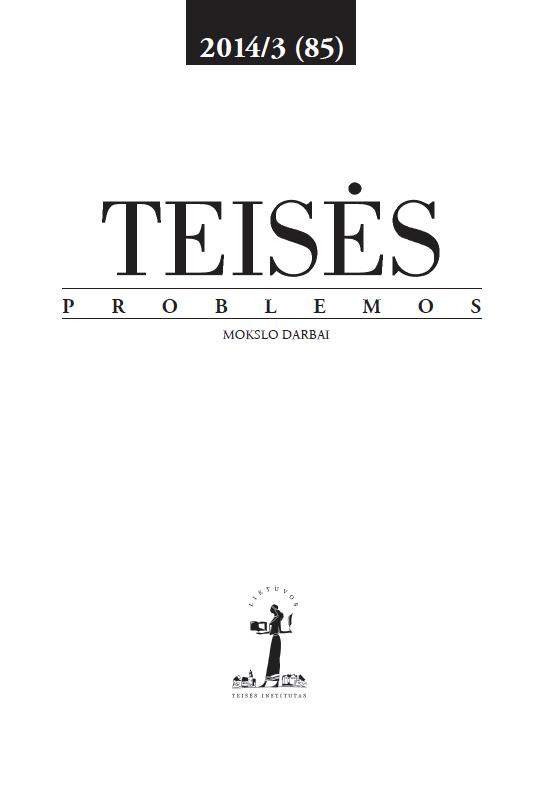Europos regioninių nuostatų implikacijos nacionalinei teisinei šeimos politikai
IMPLICATIONS FROM THE EUROPEAN PROVISIONS ON THE NATIONAL FAMILY LEGAL POLICY
Author(s): Eglė Kavoliūnaitė-RagauskienėSubject(s): Law, Constitution, Jurisprudence, EU-Legislation
Published by: Lietuvos teisės institutas
Summary/Abstract: The article provides a descriptive and systematic approach towards restraints exerted on national family policy by European provisions. The analysis covers two levels (legal acts of European Union and European Convention of Human Rights (the level of Council of Europe). Legal acts are analysed in the following fields: the purpose and context of provisions relating families in accordance with global development of legal family policy, the content of provisions relating families, and the specifics of implementation of the mentioned provisions in the national level.The article is composed of three main parts. The first part describes the international context of family policy on the basis of research works carried out in this field, covering both social development of family life and the change of attitude of a state towards the family, as well mentions possible variations for the creation of family policy and the current trends in these fields. This part serves as a theoretical background for the further analysis. The second part summarises main provisions of the European Union having impact on national family policy. The third part presents implications from the European Convention on Human Rights and its interpretation on national family policy.Inference is drawn that the analysed regulatory schemes put different emphasis and have different needs towards family relations and different expectations in respect of family policy; therefore, the concepts of family and its members, the content of provisions addressed to families, the nature of implementation of family policies in national systems are different. In the level of European Union, the dominant concept of family is institutional, whereas the ECHR emphasises the need to ensure individual rights and freedoms irrespective of formal status of an individual.
Journal: Teisės problemos
- Issue Year: 2014
- Issue No: 85 (3)
- Page Range: 84-113
- Page Count: 30
- Language: Lithuanian

